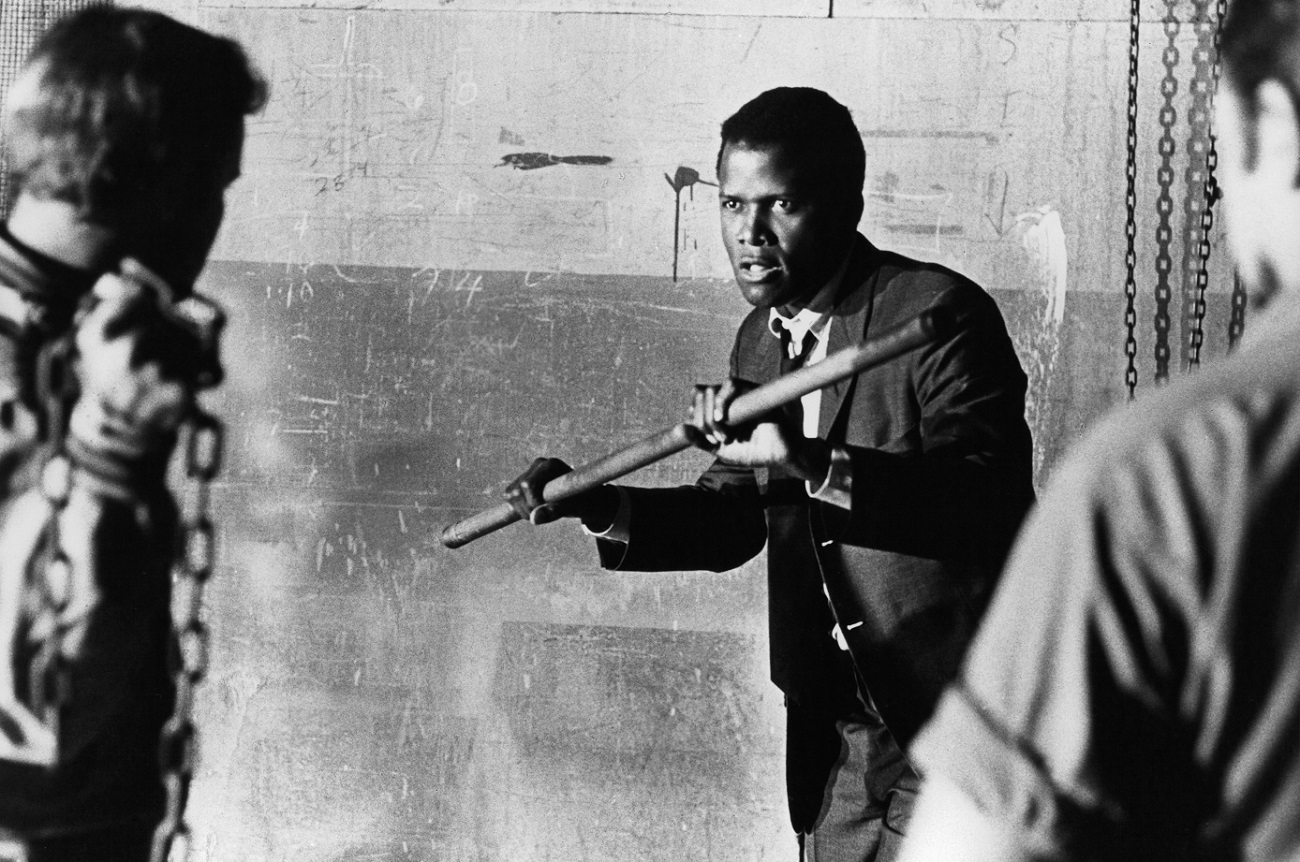‘In the Heat of the Night’: Sidney Poitier Slept With a Gun Under His Pillow During the Shoot
Any way you look at it, In the Heat of the Night (1967) represented a breakthrough in American movies. Two years before its release, the New York Times published an item on Academy Award winner Sidney Poitier signing on to play the lead in the Norman Jewison film. Poitier would be breaking ground, the Times noted.
“The screen is about to have what is believed to be its first Negro detective hero,” the Times reporter began. In an interview decades later (included in Ira Wells’ Norman Jewison: A Director’s Life), Poitier didn’t attempt to downplay the film’s importance. He said it was “so f—ing revolutionary we don’t realize it now.”
Poitier wasn’t by any means imagining his character’s life on the screen. He’d experienced harassment at the hands of police as a young man and the intense racism Black people faced every day in the ’60s (and beyond). At one point in the In the Heat of the Night shoot, Poitier reportedly slept with a gun under his pillow.
Rod Steiger said Sidney Poitier slept with a gun on the ‘In the Heat of the Night’ shoot

The year before Poitier agreed to play police detective Virgil Tibbs in In the Heat of the Night, Congress passed the Civil Rights Act, effectively banning discrimination in all public places. That meant the “whites only” signs seen throughout the South had to come down. But it obviously didn’t end segregation.
So while Poitier agreed to work on a film set in the South, he didn’t agree to film on location. Jewison and his crew needed to find a place in the North that could stand in for Mississippi. After an exhaustive search (detailed by Wells in A Director’s Life), they found their spot in Sparta, Missouri.
But In the Heat of the Night still needed a cotton plantation for a key scene involving the wealthy town father Endicott (Larry Gates). Somehow, Jewison convinced Poitier to go to Tennessee for one week to shoot those scenes. And the response was about as expected. Pickup trucks full of drunk men circled the hotel where Poitier was staying.
Rod Steiger, who played Chief Bill Gillespie, recalled (via Wells) “belligerent” service when he and Poitier ate at a restaurant. Meanwhile, Steiger said he and his co-star slept in adjoining rooms in the hotel. At night, they kept the connecting door open. Steiger said Poitier slept in the next room with a gun under his pillow that week in Tennessee.
Producers didn’t expect ‘In the Heat of the Night’ to be shown in the South
In his memoir, In the Heat of the Night producer Walter Mirisch spoke about the budget limitations he and Jewison faced with the picture. The issue boiled down to United Artists not wanting to invest a dollar more than it had to on a film that “might not be shown in the South.”
“The United Artists executives were concerned many Southern theaters might not want to play the film for fear of creating racial unrest,” Mirisch wrote in I Thought We Were Making Movies, not History. “There might be picketing or disturbances that could result in violence.”
Somehow, Mirisch managed to convince UA brass he could make a profit on the film even if it only played in the North. The production ran with a budget of $2 million in the end. When the film opened, it played in North and South alike, with none of the disturbances UA feared. The film won five Oscars and grossed over $20 million.


